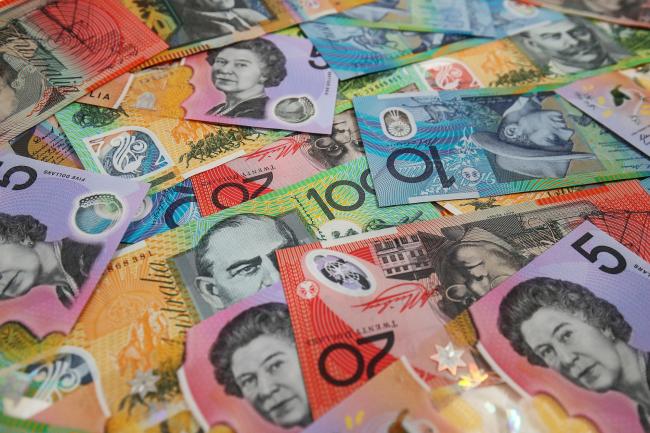(Bloomberg) -- Short Australia’s risk-sensitive currency against the haven yen. That is emerging as one popular currency trade as investors look to profit from the U.S.-China trade war.
With the conflict escalating, Citigroup Inc (NYSE:C). predicts the Aussie-yen will slip to about 72.75 in a few weeks, which marks a drop of more than 4% from 76.11 early in Asia Wednesday. Jeffrey Halley, a 30-year currency trading veteran and market analyst at Oanda Asia Pacific Pte, reckons the pair could fall below 70.
“Aussie-yen is the best bellwether for risk-off,” said Sean Callow, senior currency strategist in Sydney at Westpac Banking Corp. “I don’t see a quick resolution to the U.S.-China trade war before the Group-of-20” meeting next month, he said.
With U.S. President Donald Trump bringing the trade spat back to the fore by threatening to impose tariffs on almost all imports from China, investors are looking to benefit not just from potential downside in the Aussie, but also from gains in the yen, which is proving to be the most sought-after haven currency.
One-month risk reversals, a measure of market positioning, signal options traders are most bullish on the yen among the Group-of-10 currencies, while being the least confident about the Aussie. Further, implied volatility is indicating potential for wild swings in the Aussie-yen cross over the next three months.
“I can’t think of a better way to play the yen crosses right now other than by selling the Aussie,” said Jeffrey Halley, Singapore-based market strategist at Oanda. “There’s going to be the most value in being short Aussie because it’s such a proxy for China, and the yen is still loved as a haven. I see easily Aussie-yen falling below 70 in the next one-to-two months.”
Yuan Link
The Aussie is closely tied to the yuan as China is Australia’s largest trade partner, buying up commodities including iron ore. The Australian dollar is a proxy for investors wary of trading the yuan given capital control measures. The Aussie-yen’s correlation with how the offshore yuan trades has been rising recently and climbed to 0.60 last week -- the highest since October -- according to data compiled by Bloomberg. That’s stronger than the relationship the Chinese currency has with Aussie-greenback.
The Aussie capped a fifth straight weekly loss against the yen on Friday and touched 75.331, its lowest since early January, when it hit a decade low amid the flash crash.
“I see Aussie-yen potentially testing 72.75 in the next two weeks,” said Shyam Devani, senior technical strategist at Citi in Singapore.
Trade issues aside, the Aussie has also been under pressure from a faltering local economy and rising bets for an interest-rate cut by the Reserve Bank of Australia. Governor Philip Lowe said Tuesday he’ll consider easing at next month’s meeting to spur faster hiring. That saw the Aussie resume its losses after rallying Monday in the wake of Prime Minister Scott Morrison’s surprise election victory.
“The weaker growth outlook and market pricing around RBA rate cuts should mean a depreciation in the Aussie dollar relative to the yen over the course of the year,” said Kerry Craig, global market strategist at JPMorgan (NYSE:JPM) Asset Management in Melbourne. “However, the near term views on where the yen goes are determined by sentiment rather the fundamentals.”
Yen Haven
The yen meanwhile has gained against all other G-10 currencies over the past month -- with an advance of 1.3% against the U.S. dollar, 2.1% versus the euro and 4.9% against the Aussie -- and strategists at some of the world’s biggest banks are predicting more gains.
Still, not everyone is as bearish on the Aussie’s prospects. Some analysts say the planned meeting between Trump and Chinese President Xi Jinping at the G-20 summit may prove to be a potential catalyst for the two sides to work toward a resolution on trade.
“As long as the U.S. trade talks with China, Japan and Europe are continuing and no further physical actions are taken, it’s hard to see markets turning extremely risk-off,” said Ko Haruki, head of the financial solutions group at CIBC World Markets (Japan) in Tokyo. “The Aussie in itself may not fall so sharply, limiting the downside in the Aussie-yen pair.”
